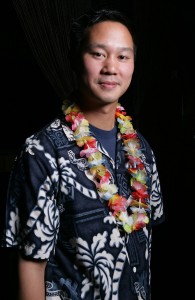Interview with a Corporate Idealist: Tony Hsieh, CEO of Zappos.com
For some time now, Zappos.com has been on my radar as an exemplary company in many ways. Their ecommerce business is top-notch; they’ve come up against increased competition from other shoe retailers online including Amazon’s Endless store but have innovated in response to the competition; they’ve been longstanding advocates of exceeding customer expectations; and by all accounts, they hire with caution and treat their employees (all 1,400 of them!) very well. Their core values include “Do More With Less,” “Be Humble,” and “Create Fun and A Little Weirdness.”
What’s not to love?
So I was delighted to have the opportunity to interview Tony Hsieh, CEO of Zappos.com, for Corporate Idealist. The following responses provide insights into what it’s like to lead a truly innovative and customer-centric company… that just happens to do over $1 billion in gross sales.
Corporate Idealist: Thank you for agreeing to this interview. In previous interviews, you’ve mentioned that you got into the shoe business because it looked like such a great opportunity — a $40 billion market. Did you have any concept at the time that you might differentiate the company through customer service, or did that evolve with time?
Tony: Back in 1999, there really weren’t any great destinations online for buying shoes. After learning that it was a $40 billion market in the US, and 5% of it ($2 billion) was being done through paper mail order catalogs, it seemed like a good investment opportunity. I got involved with Zappos about 2 months after it started.
From the beginning, we’ve always thought that customer service was important. But it wasn’t until 2003 that we decided we wanted the Zappos brand to not just be about shoes. Instead, we decided that we wanted the Zappos brand to actually be about the very best customer service and customer experience. Once we made that decision, we started making a lot of changes to our business to be even more customer-service focused.
Corporate Idealist: You’ve also stated that roughly 75% of your business on any given day is from repeat customers. Was the realization that repeat business was going to be your sweet spot something that came about by accident when reviewing business intelligence data, or were you actively trying to cultivate a loyalty- oriented business?
Tony: We stumbled into it accidentally. In the early days of the company (we were founded in 1999), we were unable to raise funding so we weren’t able to spend a lot of money on expensive marketing campaigns. As a result, we were forced to focus more on our existing customers. What we found was that the more we invested into customer service and the customer experience, the more loyal they were, and the more we grew from word of mouth. Today, we take most of the money we would have spent on paid marketing or advertising and invest it into the customer experience instead.
Corporate Idealist: What challenges did you have to overcome to make the company truly able to focus on customer service and customer experience?
Tony: During the first few years, there were many times when we we didn’t have enough money to pay our own employees, but we had such a passionate and dedicated group of employees, that many of them decided to forgo or reduce their salaries because they all believed in the long term potential of the company. If it weren’t for the passion of our early employees, Zappos wouldn’t be around today.
Corporate Idealist: Have you ever had to debate with other executives or with your board of directors about the costs associated with providing an excellent customer experience? If so, how has that been resolved?
Tony: Like any other business, we still have financial goals we need to meet in order to keep our shareholders and board of directors happy. Our approach has been to maximize the amount we invest in the customer experience and our company culture while still meeting our financial goals. There are always things we can do to make our customers happier… for example, in theory we could offer same day delivery for every customer. But it wouldn’t make sense from a financial perspective, so we don’t do that.
Corporate Idealist: Turning our attention to the employee experience, your hiring practices are famously steeped in Zappos culture and oriented towards retaining the right people through the on-boarding process. There’s a clear customer benefit in all this, but it seems that there is an employee benefit, too, in working around people who share a vision and a positive attitude. What indicators can you describe (such as retention, etc.) that this approach is working as intended?
Tony: Our turnover rate for employees varies by department (for example, turnover in the warehouse is higher), but when you compare each department with the same department in other companies, we’ve found that it’s generally lower, which saves the company money in the long run.
Corporate Idealist: You’ve said that when you decided to move operations to Las Vegas in 2004, it was due to difficulties finding customer service people in San Francisco. Yet it seems as if Las Vegas has come to be part of the company identity, as well — visiting conventioneers are often welcomed by Zappos by a party in a trendy nightclub. [Editor's note: I've been fortunate enough to attend one myself.] How did the employees who relocated from San Francisco adapt to Las Vegas culture, and how long did it take for Las Vegas to be part of the company identity?
Tony: When we first moved from San Francisco to Las Vegas, we had about 90 employees in San Francisco and about 70 ended up moving with the company. Today, we have about 700 employees in Las Vegas, so the vast majority of our current employees joined Zappos after they had already lived in Las Vegas.
For the employees that moved from San Francisco, some of them decided that living in Las Vegas wasn’t quite right for them, so we offered to pay for their relocation back to San Francisco. Overall, I think most employees are pretty happy with the move.
Most customers don’t actually know that we are located in Las Vegas, so I’m not sure if it’s really a part of the company identity.
Corporate Idealist: Another big piece of the Zappos identity that was later to the game is Twitter. You yourself are clearly one of the most popular accounts on Twitter, and many Zappos employees use it as well. How did Zappos come to embrace Twitter, and how has it become a part of the culture?
Tony: We have over 400 employees on Twitter, and you can view their tweets at:
http://twitter.zappos.com/employee_tweets
As you can see, most of the tweets are not about business or marketing, but it’s a great way for us to connect on a more personal level with both employees and customers. It gives people a glimpse into our company culture, which is ultimately what our brand is all about.
Corporate Idealist: Corporate Idealism, as we espouse it on this blog, is all about creative business, meaningful and satisfying work, and an unrelenting focus on the customer, none of which do we believe contradict the ability to make money. The Zappos story epitomizes that. Do you have anything to add for our readers about being a real- world Corporate Idealist?
Tony: I would say rather than focus on what will make you the most money or be best for your career, figure out what you would be passionate for 10 years and go pursue that. A lot of people work hard at building a career so that one day down the road they think it will bring them happiness. And most of the time, when they finally accomplish their goal, they realize that it doesn’t really end up bringing happiness or fulfillment for the long term. One of the things that the research has shown is that people are very bad at predicting what will make them happy. If the ultimate goal is to achieve enduring happiness, it seems like it’s worth spending some time learning about the science of happiness so you don’t wind up in the same situation.




Nice interview — did a breakdown of three months of Tony’s tweets in a recent blog post and reiterates using Twitter to reflect the brand… http://www.voncoelln.com/eric/2009/05/26/zappos-between-the-tweets-breaking-down-how-zappos-uses-twitter
I’m with Eric — thanks for including his philosophy/embracing of Twitter. Further evidence Zappos is evolving in real time, and that Mr. Hsieh isn’t a past-tense success, but a real leader. Great interview.